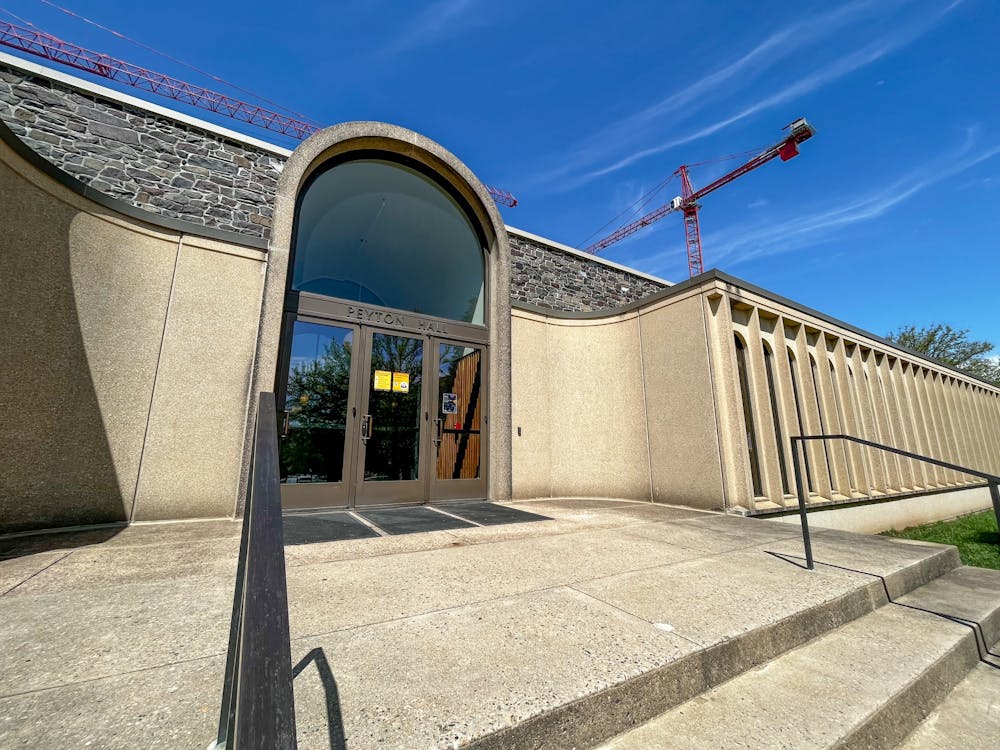“Princeton didn't fall into the ocean,” says Gillian Knapp, the Emerita Professor of Astrophysical Sciences, regarding her hiring in 1984 as the first full female faculty member in the Department of Astrophysical Sciences.
In interviews with The Daily Princetonian, Knapp and Eugene Higgins Professor of Astrophysics Neta Bahcall described their experiences as the department’s first two female professors. Bahcall was hired in 1989.
Currently, there are five female professors in the Department of Astrophysical Sciences, including Bahcall. Knapp retired in 2014. The Department of Astrophysical Sciences is still notably not as diverse as other departments on campus. There are 23 male professors in the department and no nonwhite faculty. The Department of English, in contrast is 42 percent non-male and 31 percent nonwhite.
While both professors expressed that they eventually came to be supported as women in a predominantly male field, the journey was not initially easy for Knapp, who said the University was “very nervous” about her hiring. “They didn’t make my life particularly easy,” she said.
“But the sky didn’t fall. The world didn’t come to an end,” she continued. “Everything just proceeded normally.”
Bahcall shared a similar sentiment. Referring to the professors in the department when she joined, she said, “They were all white, older men. So it was just totally different. Still, the atmosphere was very friendly and very supportive.”
In terms of research, both Knapp and Bahcall work in understanding the structure of the universe on different scales.
“I worked most of my career on the observations of the interstellar medium; that’s the gas and dust that lies between the stars and the galaxies, and out of which the new stars are formed,” Knapp said.

Knapp also collaborated on the Sloan Digital Sky Survey, an almost decade-long project that mapped more than a quarter of the sky.
Bahcall’s interests include dark matter and understanding the nature of the universe’s expansion.
Both professors also worked in administrative roles in the department, Knapp as the Director of Graduate Studies in Astrophysics and Bahcall as the Director of the Undergraduate Program in Astrophysics.
“For me to serve as the Director of Undergraduate Studies, [that] clearly helps in attracting more female students and young women to the department,” Bahcall said.

“This year, eight out of our 14 seniors are women,” she added. “Some years, we’ll have more women than men, some years we’ll have a few less, but I would say 50/50 on average.
Knapp, on the other hand, worked on providing a Princeton education to a different marginalized group. In 2005, she co-founded the Prison Teaching Initiative (PTI) alongside two astrophysics postdocs, which provides classes through the University to incarcerated people in New Jersey. PTI now offers courses at seven state prisons, as well as the Federal Correctional Institution in Fort Dix, N.J.
In an essay in a collection called, “The Sky Is for Everyone,” Knapp called her work with the PTI “by far the most effective cross-disciplinary effort I’ve ever encountered.”
“The results include hundreds of former students with degrees, families, and good jobs, forming a tight and supportive community and the beginnings of a much better world,” she wrote.
Miriam Waldvogel is an assistant News editor for the ‘Prince.’
Natalie Hahn is a News contributor for the ‘Prince.
Please send any corrections to corrections[at]dailyprincetonian.com.








